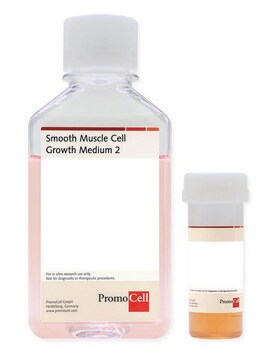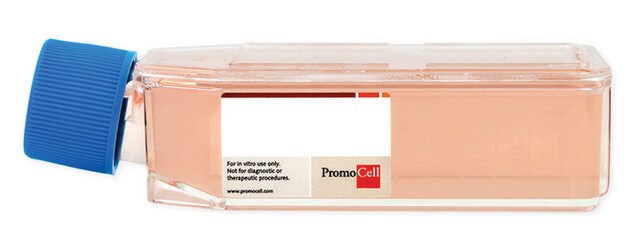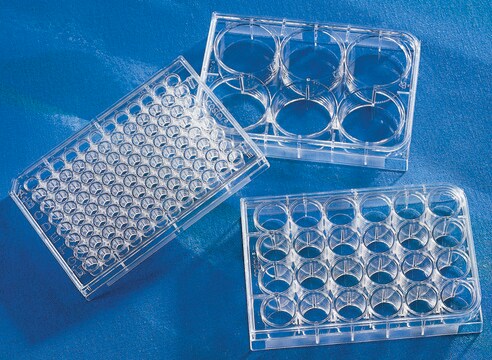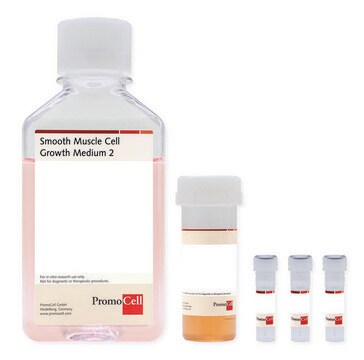C-12533
Human Aortic Smooth Muscle Cells (HAoSMC)
500,000 cryopreserved cells
Synonyme(s) :
Aortic Smooth Muscle Cells, Human Smooth Muscle Cells
About This Item
Produits recommandés
Source biologique
human aorta (smooth muscles)
Conditionnement
pkg of 500,000 cells
Morphologie
(smooth muscle)
Technique(s)
cell culture | mammalian: suitable
Maladie(s) pertinente(s)
hypertension; cardiovascular diseases
Conditions d'expédition
dry ice
Température de stockage
−196°C
Description générale
Origine de la lignée cellulaire
Application
Qualité
Avertissement
Procédure de repiquage
Autres remarques
Produits recommandés
Clause de non-responsabilité
Code de la classe de stockage
12 - Non Combustible Liquids
Classe de danger pour l'eau (WGK)
WGK 1
Point d'éclair (°F)
Not applicable
Point d'éclair (°C)
Not applicable
Faites votre choix parmi les versions les plus récentes :
Certificats d'analyse (COA)
Désolés, nous n'avons pas de COA pour ce produit disponible en ligne pour le moment.
Si vous avez besoin d'assistance, veuillez contacter Service Clients
Déjà en possession de ce produit ?
Retrouvez la documentation relative aux produits que vous avez récemment achetés dans la Bibliothèque de documents.
Articles
Smooth muscle human primary cells isolated from blood vessels and hollow organs, plus smooth muscle cell growth media. Protocols on media handling, cell passaging and product use.
Notre équipe de scientifiques dispose d'une expérience dans tous les secteurs de la recherche, notamment en sciences de la vie, science des matériaux, synthèse chimique, chromatographie, analyse et dans de nombreux autres domaines..
Contacter notre Service technique




